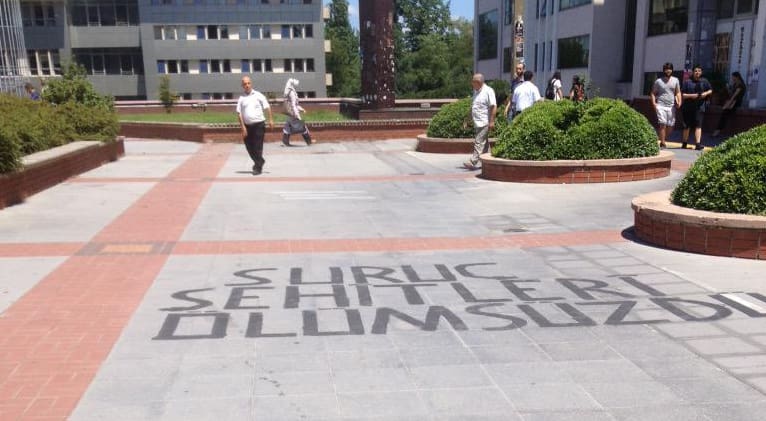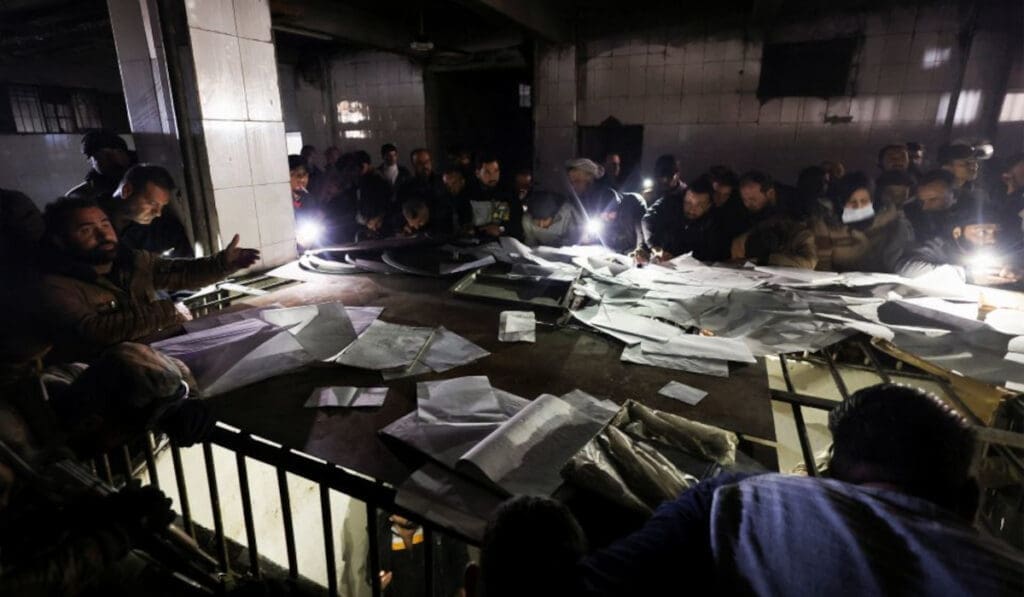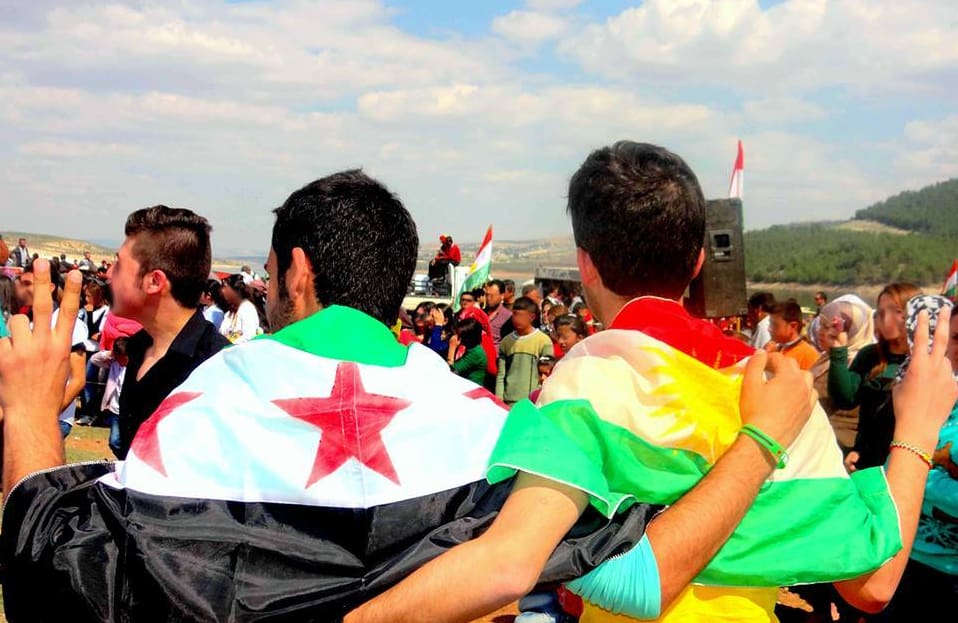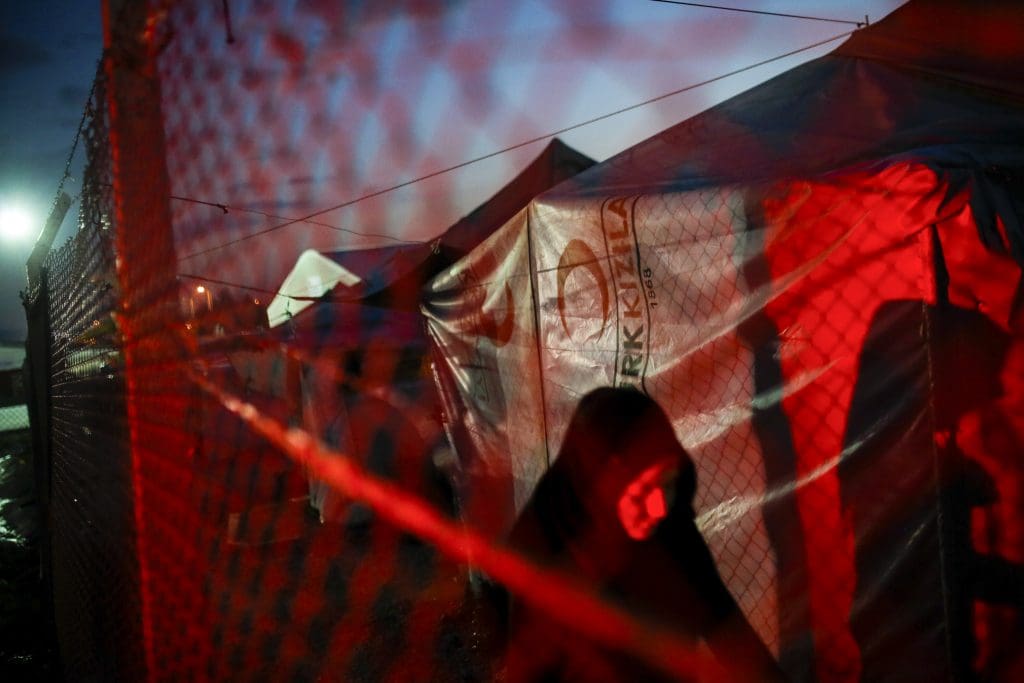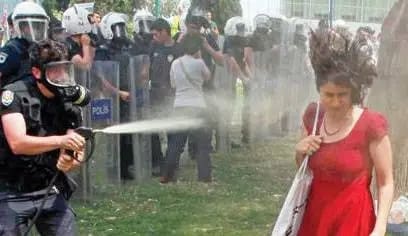by Joseph Daher for Syria Freedom Forever
Reprinted with permission (original post)
On Monday, 20 July 2015, the ultra-reactionary movement Daesh (known as the self-proclaimed Islamic State) targeted a cultural center in Amara (in the district of Suruç, Turkey) which was hosting a meeting of 300 young Kurdish leftists, members of the Federation of Socialist Youth Associations (SGDF). They were preparing to go to the nearby town of Kobanê in Syria, in order to participate in its reconstruction.
These young revolutionaries had left Istanbul the day before, to present themselves as “Children of Gezi”—children of the protest movement that began in Istanbul in June 2013. In a video for their campaign, a socialist youth of the SGDF said: “We will plant five hundred trees in the name of revolutionaries who were killed in the resistance against the Islamic State in Kobanê. We will also plant fruit trees in the name of Berkin Elvan [who was killed during the Gezi protests at the age of fifteen], reconstruct the war museum in Kobanê, rebuild the library and nursery at the cultural center, build a playground, and join the cleaning efforts in the city center of Kobanê.”
These young people were bringing books, toys, and clothes, as well as young trees to plant. The terrorist attack caused the death of more than thirty of them, and injured over one hundred. Daesh also attacked the town of Kobanê at the same moment. These new crimes of Daesh come in addition to the already numerous barbaric crimes and massacres by the ultra-fundamentalist movement in Iraq and Syria (and also across the Middle East region and North Africa) in its totalitarian and reactionary project that targets all the peoples of the region, without exception.
In Syria, Daesh has particularly attacked and targeted Syrian revolutionaries in the zone they control. This terrorist attack must nevertheless be understood as a consequence of AKP government policies, in collaboration with the Turkish “deep state,” which has been dominated by the Turkish military command since the beginning of the revolutionary processes in the region in late 2010 and early 2011.
These two reactionary forces have steadily come to rapprochement and even collaboration in recent years, despite the significant incompatibility of the two actors, when AKP reached power in 2002; we witnessed this in action during the Gezi protests in the summer of 2013.
In addition to this, we should consider how the authoritarianism of the AKP government has strengthened over the last few years: a proliferation of draconian laws giving more weight to security and police forces; violent repression of popular protest (such as during the Gezi uprising in 2013 or at the Pride Parade in Istanbul recently, or on May Day); repression of labor strikes; use of sectarian rhetoric against Alevis; reactionary discourses against women (notably Erdoğan stating that gender equality is “against nature”).
And this is to say nothing of the high-profile corruption, or of the strengthening hold of the executive on the judiciary through a bill adopted in December 2014. These two aspects combined when four Turkish senior prosecutors, who had conducted investigations of corruption against high AKP officials in the winter of 2013 and 2014, were removed from office for “disciplinary reasons.”
As highlighted—rightly—by numerous Turkish progressive activists, it is also strange that the Turkish army that is so effective at turning away Syrian civilians fleeing the bombing of the Assad regime or attacks of Daesh (as occurred last weekend when almost 500 Syrian civilians, including children and women, were arrested by the Turkish security forces for trying to cross into Turkey) is nonetheless unable to provide security to a gathering of 300 people in a cultural centre.
But it looks like more than just willful negligence. The buses of the young socialists were followed from Istanbul by plainclothes policemen. And in June, the governor of Urfa ordered journalists to stop asking him questions about the presence of members of Daesh in his city. Further, in the evening following the terrorist attack, the police in Istanbul repressed the demonstrations in solidarity with the victims of Suruç.
Finally, the AKP government has substantially supported Islamist and jihadist actors against Syrian and Kurdish democratic forces of the revolution in Syria. This has been specifically observed; for instance, the leader of the “Army of Islam” Zahran Alloush, typically operating in the countryside of Damascus and guilty of numerous exactions against Syrian activists (notably the kidnapping of revolutionaries such as Razan Zaytouneh), was able to visit Istanbul and had no problem attending a conference of clerics there—while many Syrian civilians are rejected at the Turkish border, of course. The Turkish government has meanwhile turned a blind eye to the passage of jihadists into Syria from Turkey, turning the latter into a transit zone for jihadists from around the world.
Actual collaborations between the Turkish army and some Islamist and jihadi groups have also been uncovered.
In May 2015, the former prosecutor of the Adana region, Bağrıyanık Süleyman, along with his deputies Özcan Şişman, Aziz Takcı, and Ahmet Karaca, was arrested by the Turkish authorities and appeared before the Adana court. Former Colonel Özkan Çokay, the highest ranking army officer in the region, was also arrested.
The four prosecutors investigating these men were transferred and suspended after having ordered the search of several trucks and buses in the provinces of Adana and Hatay, bordering Syria, in January 2014, suspecting them of smuggling “arms and ammunition” into Syria. A series of documents were then circulated online stating that the seized trucks were vehicles from the National Intelligence Agency (known as the MIT) delivering weapons to Islamist groups fighting the Assad regime.
In the autumn of 2014, when Daesh was laying their months-long siege to the town of Kobanê, causing about 200,000 people to flee, the AKP government refused to help the Kurds or to allow the passage of PKK fighters across the border to fight the jihadists. During this period, tents to accommodate refugees were destroyed and a human chain of peace activists along the border near Kobanê was attacked with teargas. It was around that time that the Turkish President Erdoğan said that the PKK was worse than the terrorists of Daesh.
It was also around this time that the Turkish authorities imposed a curfew, for the first time since 1992, in six provinces of the predominantly Kurdish populated regions following large demonstrations by members of the Kurdish people against the AKP government’s policies around Kobanê.
The main goal was—and is to this day—for the AKP government to prevent any form of autonomy of the Kurdish people in Syria, while supporting the fundamentalist movements in Syria with whom they have not only ideological and political affinities but actual connections—and who are, of course, also hostile to any form of autonomy of the Kurdish people. These policies and the chauvinistic discourse of President Erdoğan make any continuation of the peace process with the PKK (begun in 2013) extremely difficult.
During the last legislative election campaign, the movement of the People’s Democratic Party (HDP), which achieved a historic score of 13.1% and obtained 80 deputies, was also the target of many aggressive intimidations by the AKP party and particularly by President Erdoğan himself—and this is to say nothing of the physical attacks by Turkish far-right nationalist movements against election meetings of the HDP.
This party, which is, in its majority, composed of and based in the Kurdish population, has managed to broaden its appeal beyond only the Kurdish population (20% of the population in Turkey) with a democratic and progressive political program that recognizes the Armenian Genocide, defends the rights of LGBTQI people (with the first openly gay member of parliament), defends the rights of religious and ethnic minorities, and over 40% of its elected deputies are women.
This platform is in defiance of the historical basis of discrimination and repression by the Turkish state against the Kurdish people, whose identity is still in many ways denied (despite some advances on the cultural, socio-economic and political level).
It is in this context that the movement of the PKK and its members have been criminalized. There are more than 8,000 Kurdish political prisoners in Turkey. In this framework, it is necessary to condemn the PKK’s inclusion on lists of terrorist organizations (such as the one of the EU), though political differences and criticisms can exist regarding the PKK.
The AKP government and the Turkish “deep state,” dominated by the military, share responsibility for this barbaric massacre committed by Daesh in Suruç. Both reactionary forces have to be combated in order to hope for a radical change in Turkey and to move towards greater democracy, social justice and equality for all popular classes in Turkey, for the right to self-determination of the Kurdish people in Turkey (as well as in Syria, Iraq, and Iran), the recognition of the Armenian Genocide, and other popular causes.
Featured image source: ekim devrim (Twitter). Translation: “Suruç Martyrs Are Immortal”

